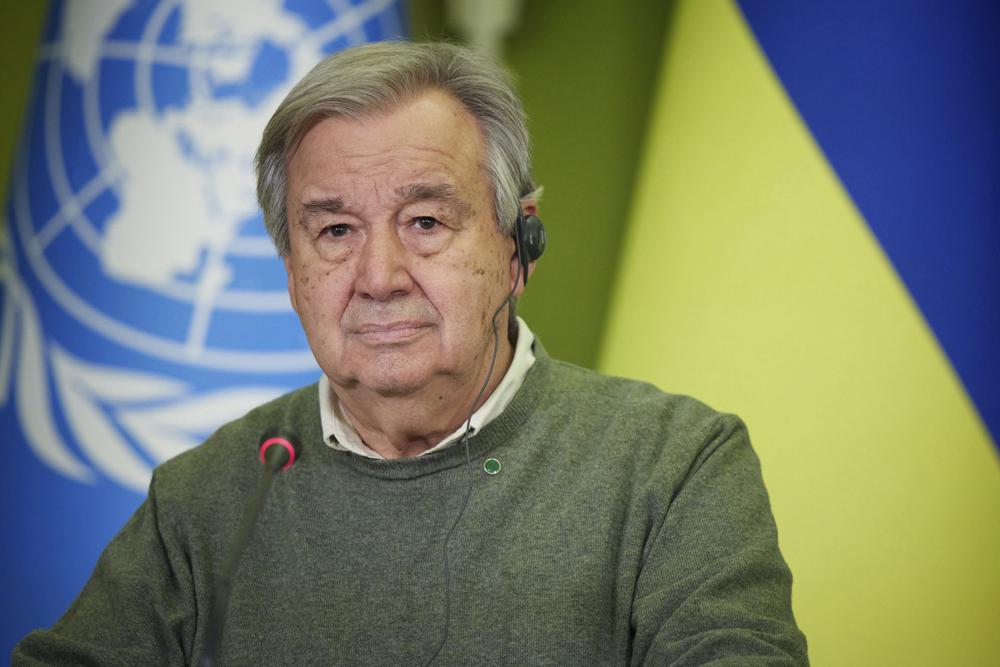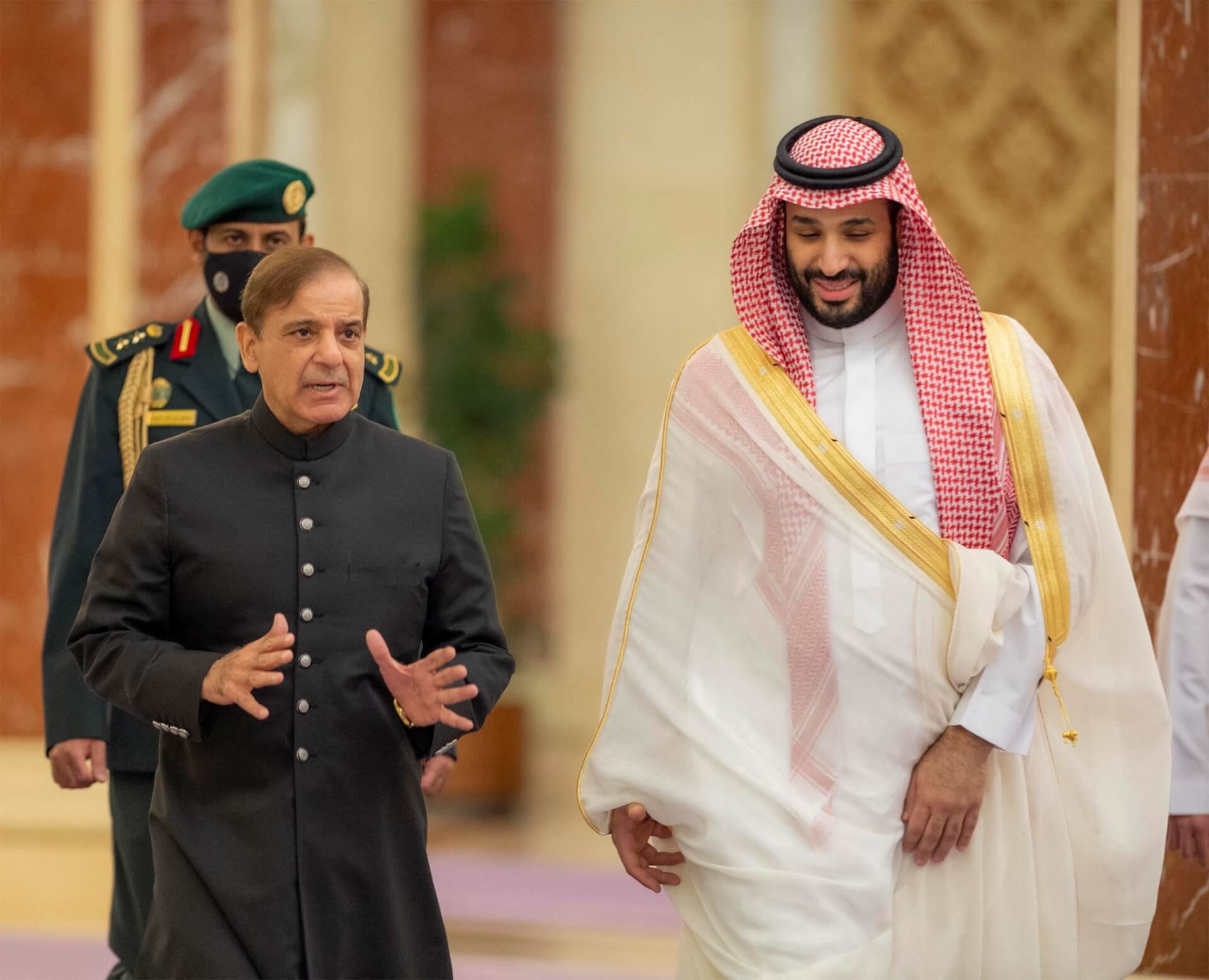South Asia
Before his meeting with Indian Prime Minister Narendra Modi in Berlin on Monday, German Chancellor Olaf Scholz expressed his ‘confidence’ that the two countries share a “broad agreement” that the actions of the Russian troops in Ukraine constitute war crimes and a violation of the “core principles of the United Nations charter.” Modi departed in the early hours of Monday morning for a three-day visit to Europe, during which he will visit Germany, Denmark, and France. [The Indian Express, ANI]
In a joint statement following a meeting between Pakistani Prime Minister Shehbaz Sharif and Saudi Arabian Crown Prince Mohammed bin Salman, Riyadh welcomed Islamabad’s stated commitment to “finding a solution to all disputes with India, especially the Jammu and Kashmir dispute, to ensure peace and stability in the region.” [Associated Press of Pakistan]
Central Asia and the Caucasus
On Sunday, Azerbaijan’s Defence Ministry accused Armenia of firing at its military positions in the Kalbajar region. No casualties were reported and the ministry said that “adequate measures” were taken by soldiers to halt the escalation, without elaborating further. [Azer News]
Uzbekistan on Sunday denied reports that its drones were flying over the northern Afghan city of Mazar-i-Sharif. “This information is absolutely untrue. The Air Force of Uzbekistan did not violate the airspace of neighbouring states,” the Defence Ministry said. The reports came after Islamic State militants in Afghanistan claimed to have launched rockets into Uzbekistan, which the Central Asian nation has rejected. [Fergana News]
East and Southeast Asia
John Lee, the top candidate in Hong Kong’s chief executive race, said resuming cross-border travel with mainland China would be his top priority. “I will work to remove all obstacles and create favourable conditions, including boosting our vaccination rates and improving our COVID-19 risk management strategies,” he said. [The Straits Times]
Japanese Prime Minister Fumio Kishida and his Vietnamese counterpart Pham Minh Chinh rejected the use of force in the Ukraine war and agreed on respect for international law. “We cannot accept the actions to change the status quo by force in any region of the world,” Kishida said after their meeting on Sunday. [Channel News Asia]
Europe
Following his recent visit to Kyiv, British Prime Minister Boris Johnson held a phone call with Ukrainian President Volodymyr Zelensky on Saturday, during which they discussed the escalating conflict in eastern Ukraine, particularly in Mariupol. A statement by the PM’s office said Johnson “reiterated that he is more committed than ever to reinforcing Ukraine and ensuring Putin fails.” Johnson also reaffirmed his commitment to providing additional military assistance and also discussed UN-led efforts to facilitate the evacuation of civilians from Mariupol. [GOV.UK]
Pope Francis on Sunday called the bombardment of the Ukrainian port city of Mariupol an act of barbarity, implicitly blaming Russia for causing a humanitarian crisis. He called the war a “macabre regression of humanity” and urged the international community to set up more humanitarian corridors in Ukraine to evacuate people. [Reuters]
German Chancellor Olaf Scholz slammed critics urging him not to send heavy weapons to embattled Ukraine during the May Day rally in Düsseldorf on Sunday. Scholz argued, “I respect all pacifism and every position. But it must seem cynical to the citizens of Ukraine when they are told to defend themselves against Putin’s aggression without weapons. This is out of time.” The rally organised by Germany’s labour union federation called Scholz a “warmonger” and a “liar.” [Politico]
Latin America and the Caribbean
Peru’s annual inflation rate hit 7.96% last month, the highest level in 24 years, with the country impacted by rising food and energy prices due to the Russia-Ukraine war. The dire economic situation has led to widespread protests against President Pedro Castillo. In fact, protests have even disturbed copper production, a critical development for a country that is the world’s second-largest copper producer. [Reuters]
Ecuadorian President Guillermo Lasso on Friday declared a state of emergency in the coastal provinces of Guayas, Manabi, and Esmeraldas amid a surge in violence, which he has attributed to drug trafficking gangs who are transporting drugs to the United States and Europe. Around 9,000 police and soldiers have been deployed to the three provinces. At least 1,255 people have been killed as a result of drug-related violence since the start of 2022. [Al Jazeera]

Middle East and North Africa (MENA)
On Friday, Germany and Turkey summoned each other’s ambassadors over a Turkish court’s decision to sentence human rights activist Osman Kavala to life in prison. German Foreign Minister Annalena Baercock condemned the court’s decision and called on Ankara to immediately release Kavala. Turkey, on the other hand, accused Germany of interfering in its internal affairs. [Associated Press]
An Egyptian natural gas pipeline in the Sinai Peninsula was blown up by suspected Islamic State (ISIS) militants on Saturday. According to security officials, the incident caused a fire in the area and there were no casualties. ISIS has previously claimed attacks on gas pipelines in Egypt, Israel, and Jordan. Egypt has been fighting an ISIS insurgency in the Sinai region since President Abdel Fattah El-Sisi came to power in 2013. [Times of Israel]
North America
Former United States President Donald Trump said that the incompetence of the Joe Biden administration could lead to a further escalation of the Ukraine war. Trump warned his supporters at a Sunday rally in Nebraska about the situation in Ukraine becoming “a very dangerous thing” that “could be a world war.” Referring to Biden, he lamented that Washington is being run by “incompetent people.” [Catch News]
Immigration, Refugees and Citizenship Canada’s processing inventory has exceeded more than two million applications across all avenues for immigration. However, the Express Entry application backlog reduced to around 45,000 in April from about 52,000 in March. [CIC News]
Oceania
The Pacific Elders Voice, a group of former Pacific Island leaders, called on Australia to initiate “credible and urgent actions on climate change” and slammed it for not consulting with the region following the Solomon Islands’ security pact with China. The Group said, “We are concerned that major powers, including the US, Japan and Australia, are developing strategies and policies for the ‘Indo-Pacific’ with little, if any, consultation with Pacific Island countries.” [The Sydney Morning Herald]
To highlight his government’s tough stance on China ahead of federal elections, Australian Prime Minister Scott Morrison accused the Asian giant of foreign interference. To this end, he said would introduce a ban on foreign political donations and the registration of foreign representatives. [Reuters]
Sub-Saharan Africa
Guinean junta leader Col. Mamady Doumbouya, who took power via a military coup in September 2021 to depose then-President Alpha Condé, has said a return to civilian rule will likely take more than three years. This is well in excess of the 12-15 months demanded by the Economic Community of West African States, which has suspended Guinea’s membership and imposed sanctions on junta leaders. [Reuters]
Following his trips to Russia and Ukraine, United Nations Secretary-General António Guterres began a tour of West Africa on Saturday that will see him visit Senegal, Niger, and Nigeria. Apart from meeting political leaders, Guterres will also meet civil society representatives, religious leaders, and refugees and displaced people who have been impacted by conflict in the Sahel region. [Associated Press]

